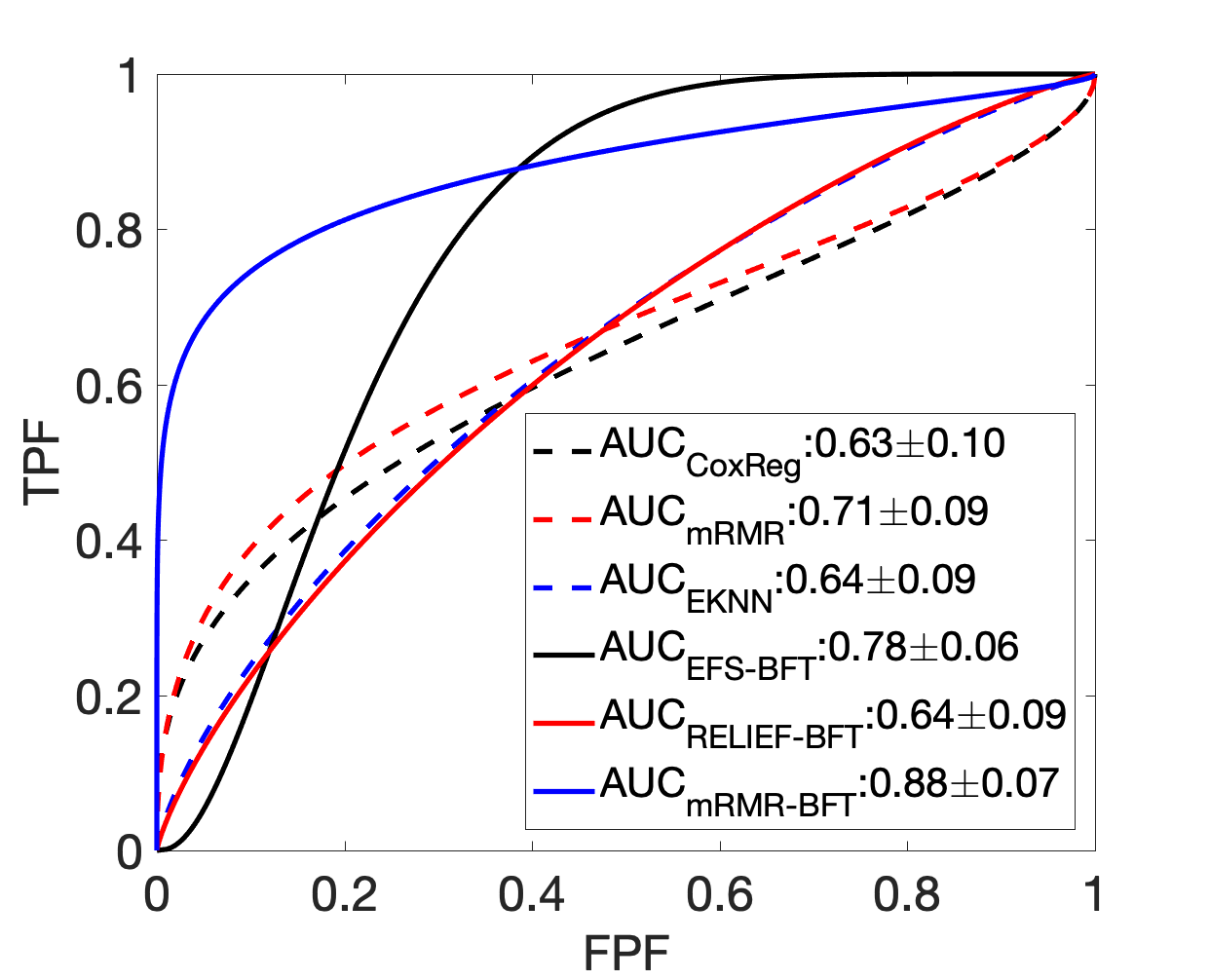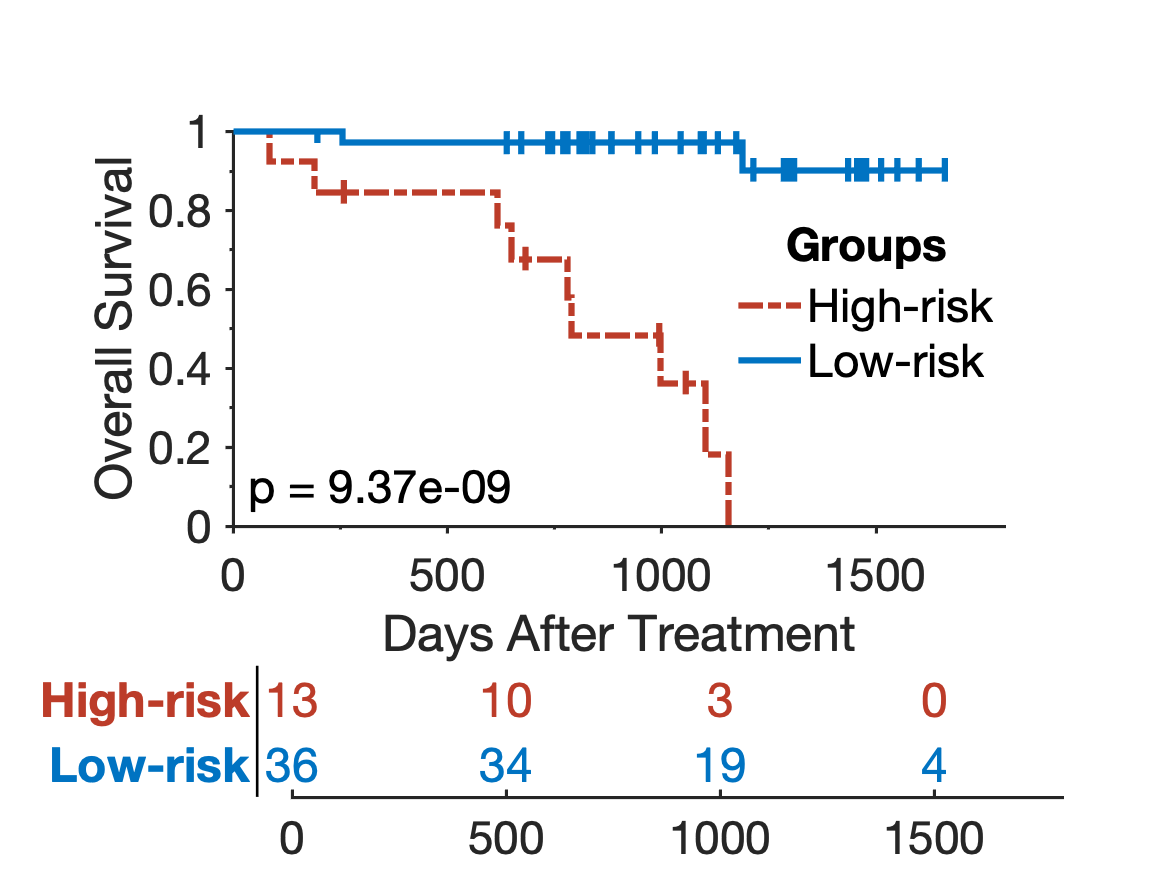Predicting early in treatment whether a tumor is likely to respond to treatment is one of the most difficult yet important tasks in providing personalized cancer care. Most oropharyngeal squamous cell carcinoma (OPSCC) patients receive standard cancer therapy. However, the treatment outcomes vary significantly and are difficult to predict. Multiple studies indicate that microRNAs (miRNAs) are promising cancer biomarkers for the prognosis of oropharyngeal cancer. The reliable and efficient use of miRNAs for patient stratification and treatment outcome prognosis is still a very challenging task, mainly due to the relatively high dimensionality of miRNAs compared to the small number of observation sets; the redundancy, irrelevancy and uncertainty in the large amount of miRNAs; and the imbalanced observation patient samples. In this study, a new machine learning-based prognosis model was proposed to stratify subsets of OPSCC patients with low and high risks for treatment failure.
Methodology
The proposed prognosis model, as shown in Figure 1., include three steps of: 1) mRMR-based feature pre-selection, 2) BFT-based feature refinement, and 3) EK-NN classifier.

Results
Receiver operating characteristic curve (ROC) and Kaplan Kaplan-Meier survival curves were used to evaluate our mehtod. 150 patient cases were used to test our method. The results are shown in Figure 2 and Figure 3, respectively.


Related publications
1. Shenghua He, Chunfeng Lian, Wade Thorstad, Hiram Gay, Yujie Zhao, Su Ruan, Xiaowei Wang, and Hua Li*, “A novel machine learning approach for cancer treatment prognosis and its applications in oropharyngeal cancer with microRNA biomarkers”, Bioinformatics 2021 (accepted).
2. Shenghua He, Ziyao Yi, Su Ruan, Mark Anastasio, Sasa Mutic, Hiram Gay, Wade Thorstad, Xiaowei Wang, and Hua Li*, “MicroRNA-Based Survival and Relapse Prognosis for Oropharyngeal Cancer Treatment by Use of Cox Regression and Belief Function Theory”, AAPM 2019.